Related Research Articles
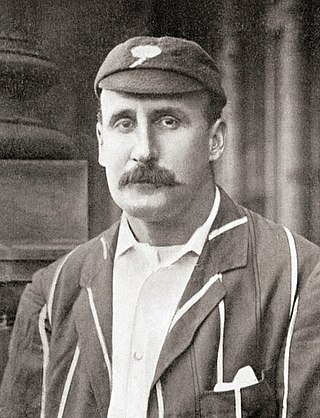
Martin Bladen Hawke, 7th Baron Hawke, generally known as Lord Hawke, was an English amateur cricketer active from 1881 to 1911 who played for Yorkshire and England. He was born in Willingham by Stow, near Gainsborough, Lincolnshire, and died in Edinburgh. He appeared in 633 first-class matches, including five Test matches, as a righthanded batsman, scoring 16,749 runs with a highest score of 166 and held 209 catches. He scored 13 centuries and 69 half-centuries.

Arthur Edward Robert Gilligan was an English first-class cricketer who captained the England cricket team nine times in 1924 and 1925, winning four Test matches, losing four and drawing one. In first-class cricket, he played as an amateur, mainly for Cambridge University and Sussex, and captained the latter team between 1922 and 1929. A fast bowler and hard-hitting lower order batsman, Gilligan completed the double in 1923 and was one of Wisden's Cricketers of the Year for 1924. When his playing career ended, he held several important positions in cricket, including that of England selector and president of the Marylebone Cricket Club (MCC). A popular figure within cricket, he was widely regarded as sporting and friendly.
Greville Thomas Scott Stevens was an English amateur cricketer who played for Middlesex, the University of Oxford and England. A leg-spin and googly bowler and attacking batsman, he captained England in one Test match, in South Africa in 1927. He was widely regarded as one of the leading amateur cricketers of his generation who, because of his commitments outside cricket, was unable to fulfil his potential and left the game early.

Norman Walter Dransfield Yardley was an English cricketer who played for Cambridge University, Yorkshire County Cricket Club and England, as a right-handed batsman and occasional bowler. An amateur, he captained Yorkshire from 1948 to 1955 and England on fourteen occasions between 1947 and 1950, winning four Tests, losing seven and drawing three. Yardley was named Wisden Cricketer of the Year in 1948, and in his obituary in Wisden Cricketers' Almanack he was described as Yorkshire's finest amateur since Stanley Jackson.

Wilfred Rhodes was an English professional cricketer who played 58 Test matches for England between 1899 and 1930. In Tests, Rhodes took 127 wickets and scored 2,325 runs, becoming the first Englishman to complete the double of 1,000 runs and 100 wickets in Test matches. He holds the world records both for the most appearances made in first-class cricket, and for the most wickets taken (4,204). He completed the double of 1,000 runs and 100 wickets in an English cricket season a record 16 times. Rhodes played for Yorkshire and England into his fifties, and in his final Test in 1930 was, at 52 years and 165 days, the oldest player who has appeared in a Test match.
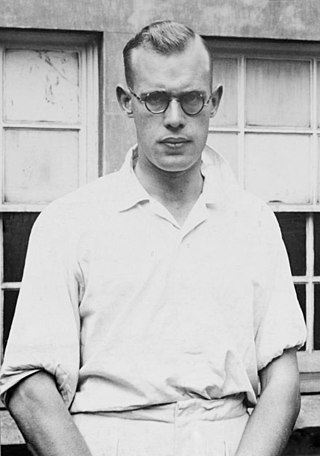
William Eric Bowes was an English professional cricketer active from 1929 to 1947 who played in 372 first-class matches as a right arm fast bowler and a right-handed tail end batsman. He took 1,639 wickets with a best performance of nine for 121 and completed ten wickets in a match 27 times. He scored 1,531 runs with a highest score of 43* and is one of very few major players whose career total of wickets taken exceeded his career total of runs scored. He did not rate himself as a fielder but he nevertheless held 138 catches.
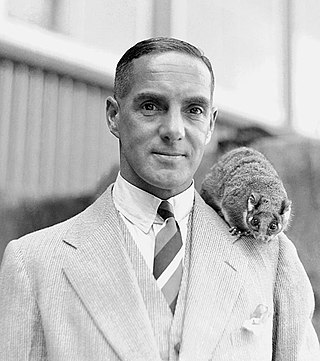
Herbert Sutcliffe was an English professional cricketer who represented Yorkshire and England as an opening batsman. Apart from one match in 1945, his first-class career spanned the period between the two world wars. His first-class debut was delayed by the First World War until 1919 and his career was effectively terminated in August 1939 when he was called up for military service in the imminent Second World War. He was the first cricketer to score 16 centuries in Test match cricket. He is most famous for being the partner of Jack Hobbs and the partnership between the two, Hobbs and Sutcliffe, is widely regarded as the greatest partnership of all time.

Roy Kilner was an English professional cricketer who played nine Test matches for England between 1924 and 1926. An all-rounder, he played for Yorkshire County Cricket Club between 1911 and 1927. In all first-class matches, he scored 14,707 runs at an average of 30.01 and took 1,003 wickets at an average of 18.45. Kilner scored 1,000 runs in a season ten times and took 100 wickets in a season five times. On four occasions, he completed the double: scoring 1,000 runs and taking 100 wickets in the same season, recognised as a sign of a quality all-rounder.

Edward George Wynyard was an English sportsman and a career officer in the British Army. He was primarily known as a first-class cricketer who played at the domestic level predominantly for Hampshire and the Marylebone Cricket Club (MCC), in addition to playing Test cricket for England on three occasions. He made over 150 appearances in first-class cricket between 1878 and 1912, as a batsman whom Wisden described as "a splendid forcing batsman". He scored over 8,300 runs and made thirteen centuries. He was an important figure in Hampshire's return to first-class status in 1894, and shortly after their re-elevation he was engaged as both their captain and president. Wynyard's administrative duties would later see him serve on the committee of the MCC.
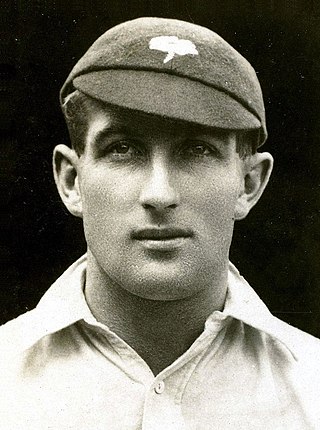
Abraham "Abe" Waddington, sometimes known as Abram Waddington, was a professional cricketer for Yorkshire, who played in two Test matches for England, both against Australia in 1920–21. Between 1919 and 1927 Waddington made 255 appearances for Yorkshire, and in all first-class cricket played 266 matches. In these games, he took a total of 852 wickets with his left arm fast-medium bowling. Capable of making the ball swing, Waddington was admired for the aesthetic quality of his bowling action. He was a hostile bowler who sometimes sledged opposing batsmen and questioned umpires' decisions, behaviour which was unusual during his playing days.
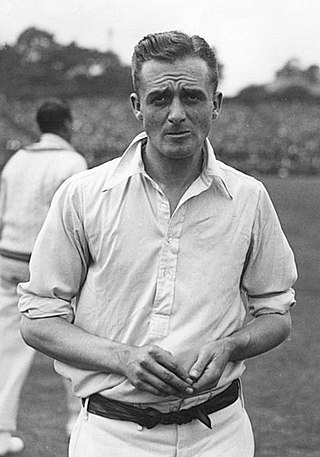
George Gibson Macaulay was a professional English cricketer who played first-class cricket for Yorkshire County Cricket Club between 1920 and 1935. He played in eight Test matches for England from 1923 to 1933, achieving the rare feat of taking a wicket with his first ball in Test cricket. One of the five Wisden Cricketers of the Year in 1924, he took 1,838 first-class wickets at an average of 17.64 including four hat-tricks.

Geoffrey Bevington Legge was an English first-class cricketer who played in five Test matches between 1927 and 1930. He was born at Bromley, Kent and died at Brampford Speke, Devon in a flying accident while serving in the Fleet Air Arm during World War II.
Ronald Aird was an English first-class cricketer, cricket administrator and British Army officer. Aird began his first-class cricket career with Hampshire County Cricket Club in 1920, making over 100 appearances for the county in which he scored over 3,600 runs. After also playing first-class cricket for Cambridge University Cricket Club while studying at Clare College, Aird was appointed assistant secretary of the Marylebone Cricket Club (MCC) in 1926, which restricted his appearances in first-class cricket thereafter. He served as assistant secretary under William Findlay and Rowan Rait Kerr, and was himself elected secretary following Kerr's retirement in 1952. Aird remained in the post until 1962 and became MCC president in 1968, the year in which he chaired the special general meeting of the MCC over relations with South Africa during the D'Oliveira affair. He was president of Hampshire County Cricket Club from 1971 to 1983. Outside of cricket, Aird served in the Second World War with the Royal Armoured Corps and was decorated with the Military Cross.
Thomas Ormsby Jameson was an Irish first-class cricketer and a soldier British Army. As a cricketer, he made 124 appearances in first-class cricket as an all-rounder. He was mostly associated with the British Army cricket team, Hampshire, and the Marylebone Cricket Club, though he also represented Ireland twice. In first-class cricket, he scored nearly 4,700 runs and took over 250 wickets. In the British Army, he was an officer in the Rifle Brigade, with whom he served in the first part of the First World War, before serving with the West African Frontier Force. A major shareholder in Jameson Irish Whiskey, he was dsecended from its founder John Jameson.
David Cecil Fowler Burton, better known as Cecil Burton, was a first-class cricketer, who played for Cambridge University (1907-1908), Marylebone Cricket Club (MCC) (1910-1922) and Yorkshire (1907-1921). He captained Yorkshire from 1919 to 1921.
Harold Swift Kaye was an English first-class cricketer, who played eighteen matches for Yorkshire County Cricket Club in 1907 and 1908. He also appeared for in one first-class game for the Marylebone Cricket Club (MCC) in 1908, and two for H. D. G. Leveson Gower's XI in 1909 and 1910. He reappeared for the MCC in a non first-class game in 1922.
Guy Fife Earle was an English cricketer who played first-class cricket for Surrey and Somerset for 20 years before and after the First World War. He also played in India, Sri Lanka, Australia and New Zealand as a member of official Marylebone Cricket Club touring teams, though he did not play Test cricket.
Charles Arthur Winter was an English cricketer who played 26 first-class matches for Somerset County Cricket Club between 1921 and 1925. A right-handed batsman, he scored 437 first-class runs for the county from the middle-to-lower order. He also bowled occasionally for Somerset as a right-arm fast-medium bowler, claiming 15 wickets a bowling average of 38.13.
Harold Watson was an English cricketer active in the 1910s and 1920s, making just over a dozen appearances in first-class cricket. Born at Gooderstone, Norfolk, Watson was a right-handed batsman who bowled right-arm fast-medium and who played most of his cricket at minor counties level with Norfolk.
An English team raised by Marylebone Cricket Club (MCC) toured Australia in November 1922 and March 1923 on their way to and from a longer tour of New Zealand. After a short stopover in Ceylon, where a single minor match was played, they played four first-class matches against Australian state teams in November, and three on the way back from New Zealand in March.
References
- Geoffrey Wilson at ESPNcricinfo
- Geoffrey Wilson at CricketArchive (subscription required)
- ↑ Warner, David (2011). The Yorkshire County Cricket Club: 2011 Yearbook (113th ed.). Ilkley, Yorkshire: Great Northern Books. p. 382. ISBN 978-1-905080-85-4.
- ↑ "Geoffrey Wilson: 1895 - 1960". Ossett - the history of a Yorkshire town. Archived from the original on 16 November 2016. Retrieved 9 July 2017.